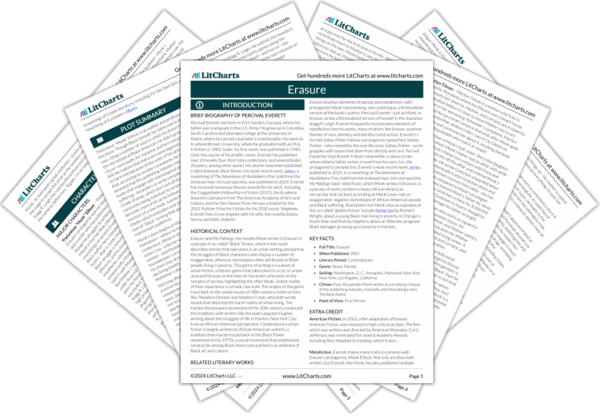Mother’s outburst makes it clear to Monk that he cannot procrastinate admitting her to a facility any longer. Although Mother’s disease is in part to blame for the specific insults she hurls against Lorraine, her words also point to the internalized racism and self-hatred she continues to hold inside herself after years of being made to feel inferior in her marriage. The ugliness of Mother’s outburst shows Monk the ugliness of his father’s elitism and internalized racism—sentiments Monk himself has internalized, even if doesn’t consciously recognize them as such.


